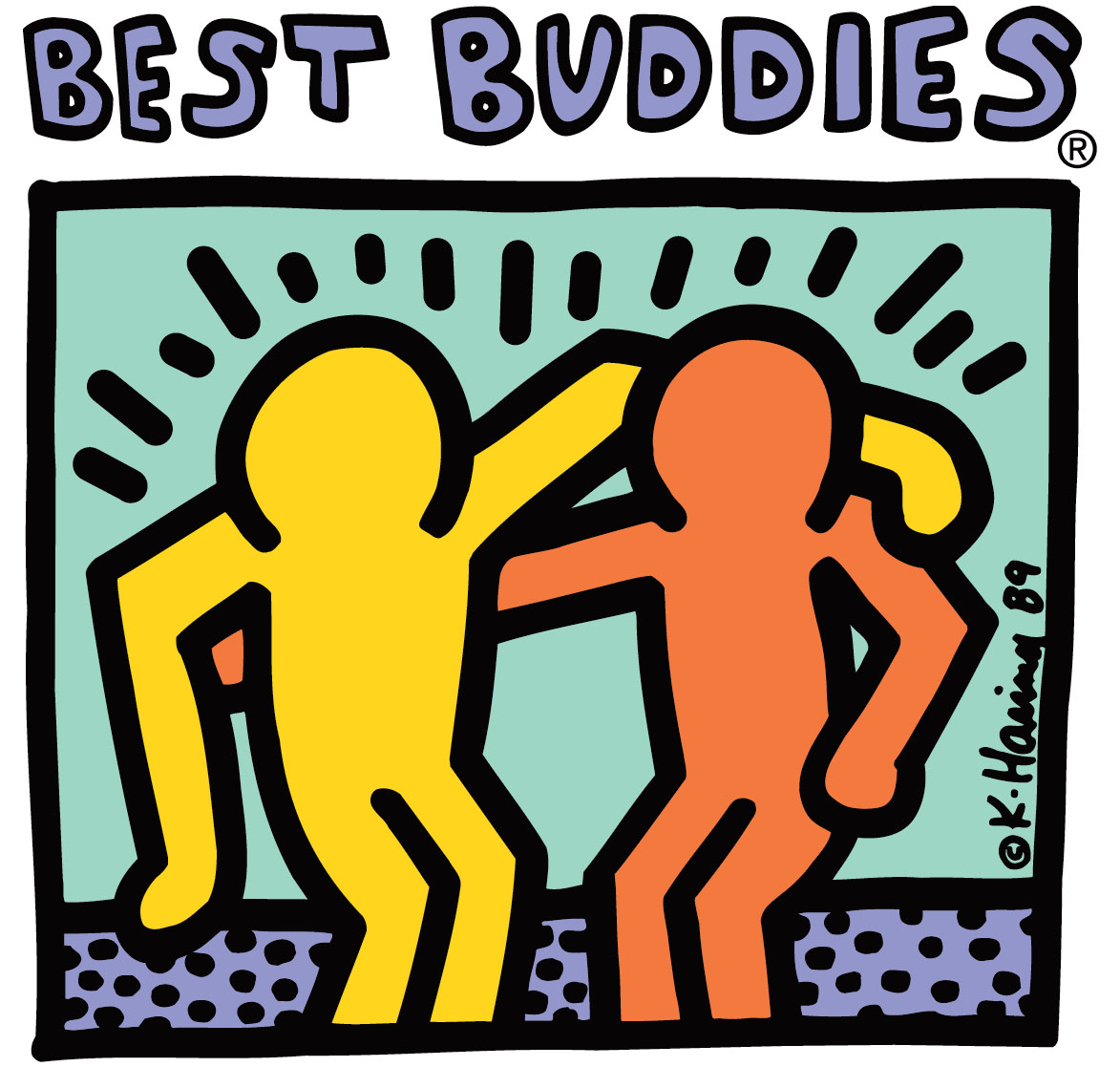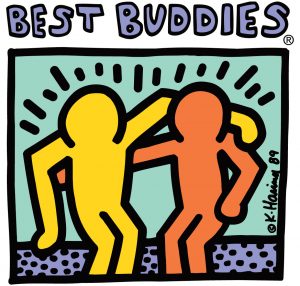The word “buddy” comes up a lot in programs for people with disabilities.
When Penny was a toddler, our church said they’d like to get a “buddy” in the classroom with her (by which they meant an adult to help her navigate the room or kids if she needed extra help).
There are “Buddy Walks” to raise money for causes related to Down syndrome. We’ve participated and supported many of those over the years.
There’s the “Best Buddies” program, in which typically-developing college students pair up with adults with intellectual disabilities in their communities. My sister Kate had a “best buddy” in college, and her relationship with S, who had Down syndrome, was one of the most meaningful friendships of her time there. My sister Elly also had a buddy who our whole family came to know and love. My favorite story about a best buddy experience came from the man who–alongside his “best buddy” of twelve years–completed the NYC Marathon (link to the TODAY show interview in the comments below). They clearly had a mutually encouraging relationship that led to personal transformation for them both.
In other words, buddies are awesome.
And yet I cringe a little bit when I hear the word, or when I think about someone being Penny’s buddy. It sounds pejorative to me. It sounds one-sided. It sounds immature. The dictionary definition of buddy doesn’t support me here. It says a buddy is a chum, a friend, a comrade. And certainly I want Penny to have friends, and I utterly support programs that provide social support to make those friendships possible.
Penny and I often talk about finding “mentors”–people who know more than she does about something where she wants to learn and grow. And I wonder whether one of the reasons I don’t like the word buddy is that buddies are often not just friends but actually more like a mentor? Or maybe I’m just making too much of it all.
The picture above is of Penny and Marilee with their former babysitter Maddie. Maddie started to babysit Penny in the summer when Pen was 1. 11 years later, they are friends, and Maddie is of course more than a friend. She’s a role model (and someone who went on to get a degree in special education and teach kids with special needs) and a mentor and a beloved friend of our family. I could not be more grateful for people like Maddie in Penny’s (and my!) life.
I’m curious to know what you think. What comes to mind when you hear the word buddy? If you have a typically developing kid, would you like it if someone assigned your kid a “buddy”? If you have a child with an intellectual disability, do you like the word buddy? Why or why not?




